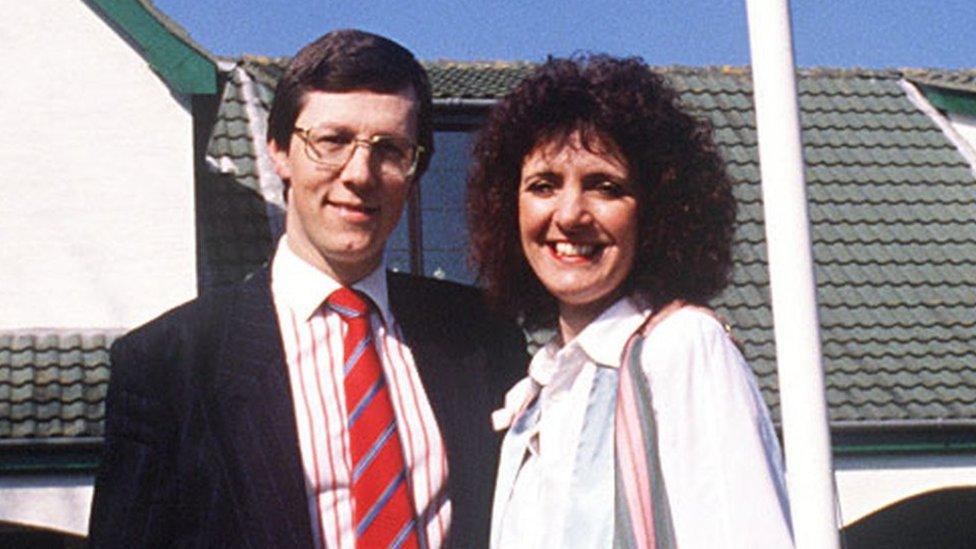Irish unity poll a 'bad idea', warns Varadkar
- Published
- comments
Leo Vardakar told BBC Radio Ulster a border poll is a bad idea
An Irish unity poll in Northern Ireland would be divisive and "a bad idea", Irish PM Leo Varadkar has said.
On Thursday, former NI first minister Peter Robinson said any future border poll on Northern Ireland's future in the UK could not be conducted on the basis of a simple majority.
He said the idea of a "majority of one" would lead to chaos.
Mr Varadkar said "a simple majority is enough", but questioned whether that would be a "good thing".
The taoiseach made his comment ahead of becoming the first Irish prime minister to visit the headquarters of the Orange Order in Belfast.
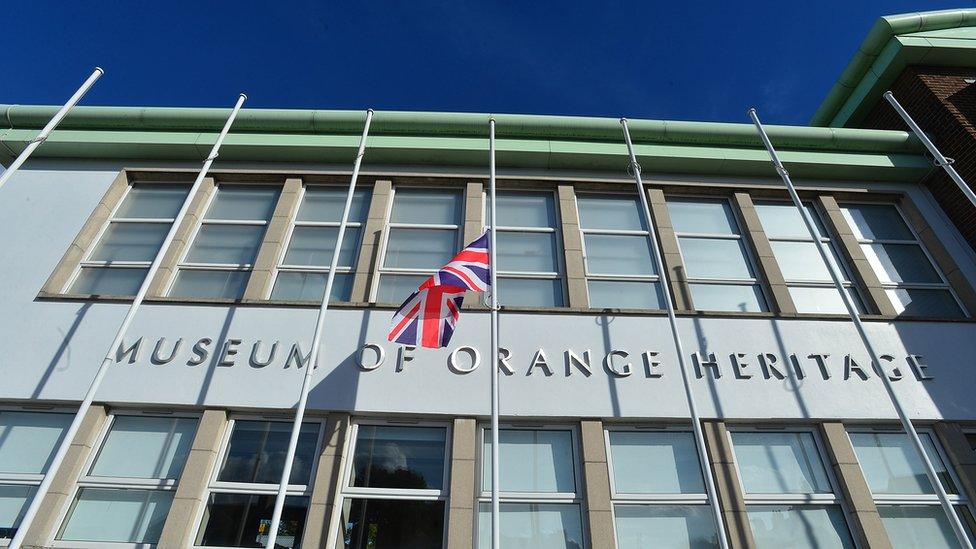
Mr Varadkar's first engagement on Friday in NI will be to meet Orange Order members in Schomberg House
"I think a border poll would be defeated and very divisive," said Mr Varadkar.
"We should be respecting the primacy of the Good Friday Agreement and, at the heart of the Good Friday Agreement, is power-sharing within Northern Ireland, ever-increasing cooperation within the north and south and peace in Britain and Ireland."
Mr Varadkar said that even though the Good Friday Agreement provides for a border poll to be carried by a majority of one, the time or the conditions were not right.
"I think the focus should be on getting the institutions up and running again, rather than focusing on a border poll."
Efforts to restore power sharing in Northern Ireland have so far failed, after the Executive collapsed 17 months ago.
'Focus on power-sharing'
Talks to get the Northern Ireland Assembly up and running failed in February with both Sinn Féin and the DUP blaming each other for an inability to strike a deal.
It comes as a survey conducted for the BBC suggested that the prospect of Brexit may be having a significant impact on how some people in Northern Ireland regard their future.
More than a quarter (28%) said the UK's decision to leave the EU has made them more likely to vote for a united Ireland.
Speaking during a lecture at Queen's University in Belfast, Mr Robinson shared Mr Varadkar's views that the focus must be on restoring a power-sharing government in Northern Ireland.
He was appointed an honorary professor in peace studies in May.
Mr Robinson served as the first minister of Northern Ireland from 2008 until he retired in January 2016.
His inaugural lecture delivered on Thursday evening was entitled "Negotiating the Way Forward: Restoring Government in Northern Ireland".
A number of academics have protested at his appointment to the non paid, part-time position, attached to the Senator George J Mitchell Institute for Global Peace, Security and Justice.
'Recipe for chaos'
Mr Robinson told the audience: "The existing simplistic, majority-of-one, mechanism to deal with colossal constitutional change would be a recipe for chaos if ever it were to be activated.
"It is better to deal with the process that would be involved, when there is no reason to anticipate an outcome that obliges change, rather than having to tackle the issue on the fly if it was ever to be triggered in the future."
In reference to the continuing deadlock preventing the return of a power-sharing executive in Northern Ireland he said the less well off are suffering the most:
"A legion of decisions awaits Ministerial sign-off. These include matters vital to the public health, well being and prosperity.
"Inescapably, it is the poor, the needy, the meek and humble who suffer most."
Mr Robinson said the next set of negotiations must feel like a "settlement" and not part of an ongoing process.
Peter Robinson warns of border poll chaos
He added it would not be possible for party leaders to bring all of their members with them on any potential agreement:
"Let's be clear, not all of your colleagues, will want to make the necessary concessions.
"That's where leadership comes in.
"If you want support, you must not show any uncertainty. You must take ownership of the deal. Nobody can sell it better than you can," he added.
'Deal won't sell itself'
He said that for a deal to be sold to the public, party leaders needed to become "evangelists" for it: "Discipline is essential. You and your team must be out there positively selling the benefits of the deal.
"No matter how good the deal may be, it will not sell itself," he added.
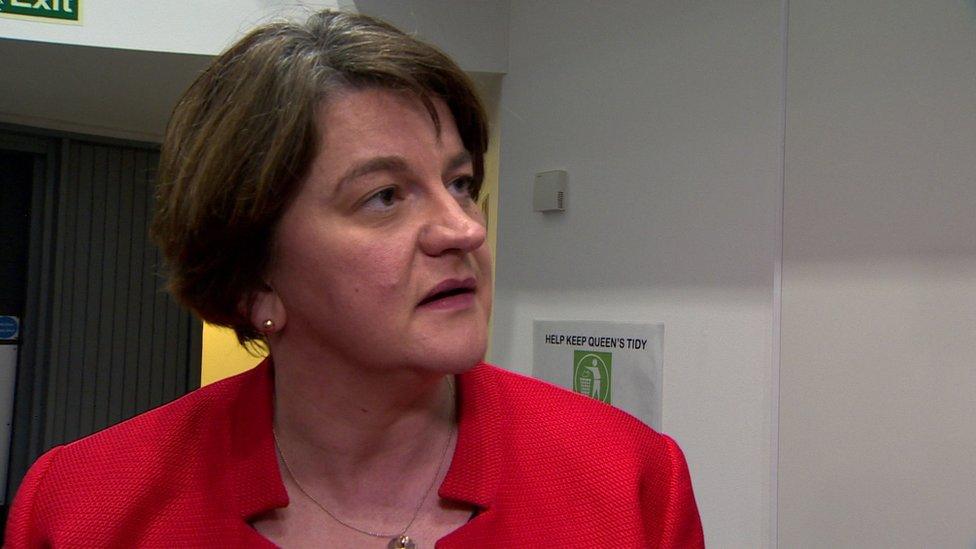
Arlene Foster was among the audience at Peter Robinson's lecture
Among those listening to the speech was the current DUP leader Arlene Foster.
She rejected a suggestion that the reference to leadership was criticism of her:
"I think he was actually reflecting what happened in February because, of course, it was the very first time that there wasn't a soft landing.
"In fact papers were released to the media, commentary was made on those papers and he is right about that.
"It makes it a lot more difficult to put back together again and to build trust up again when something like that happens," she added.
- Published8 June 2018
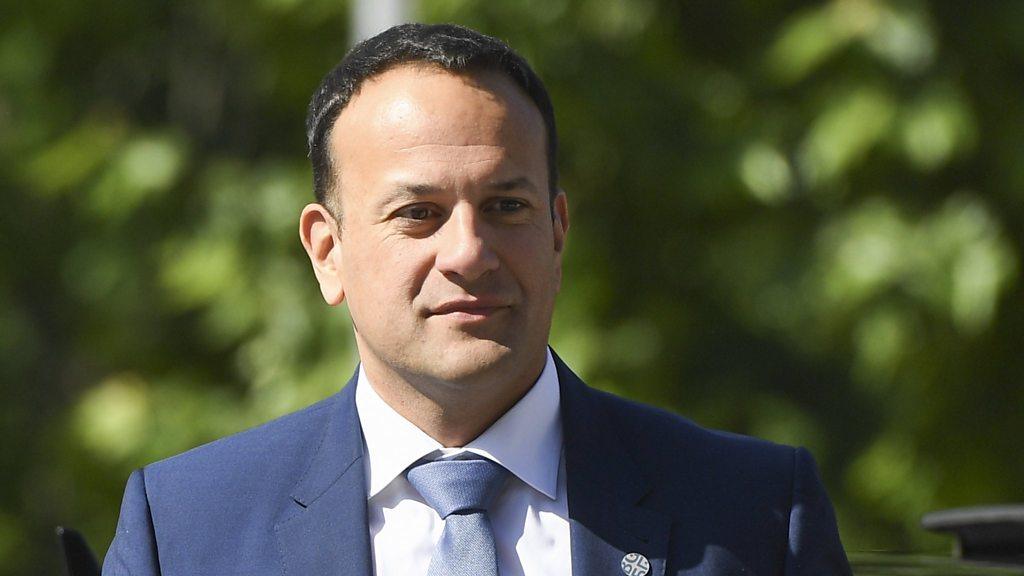
- Published17 May 2018
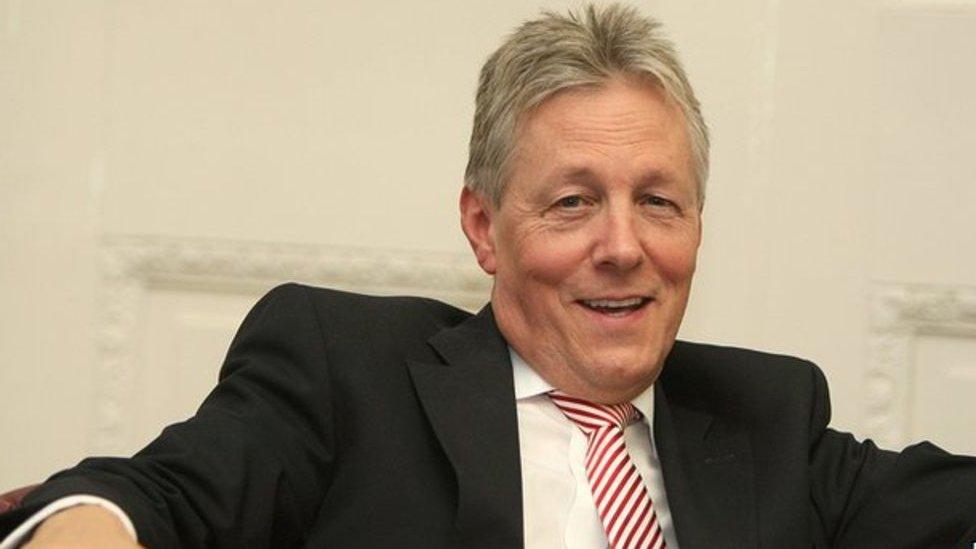
- Published14 February 2018
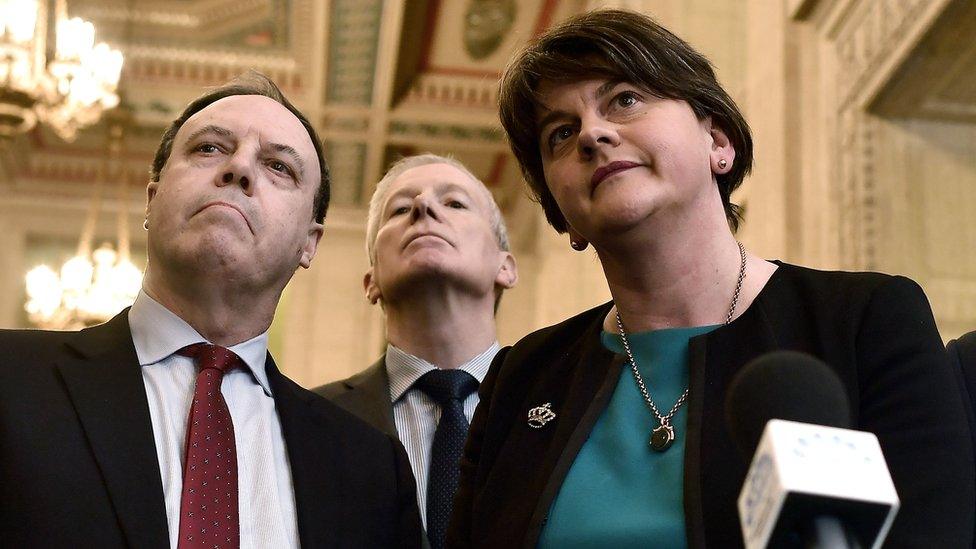
- Published21 November 2015
